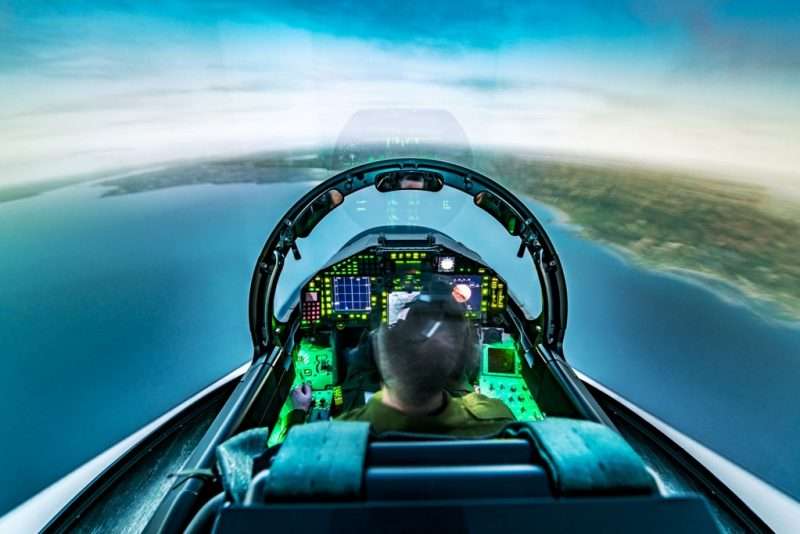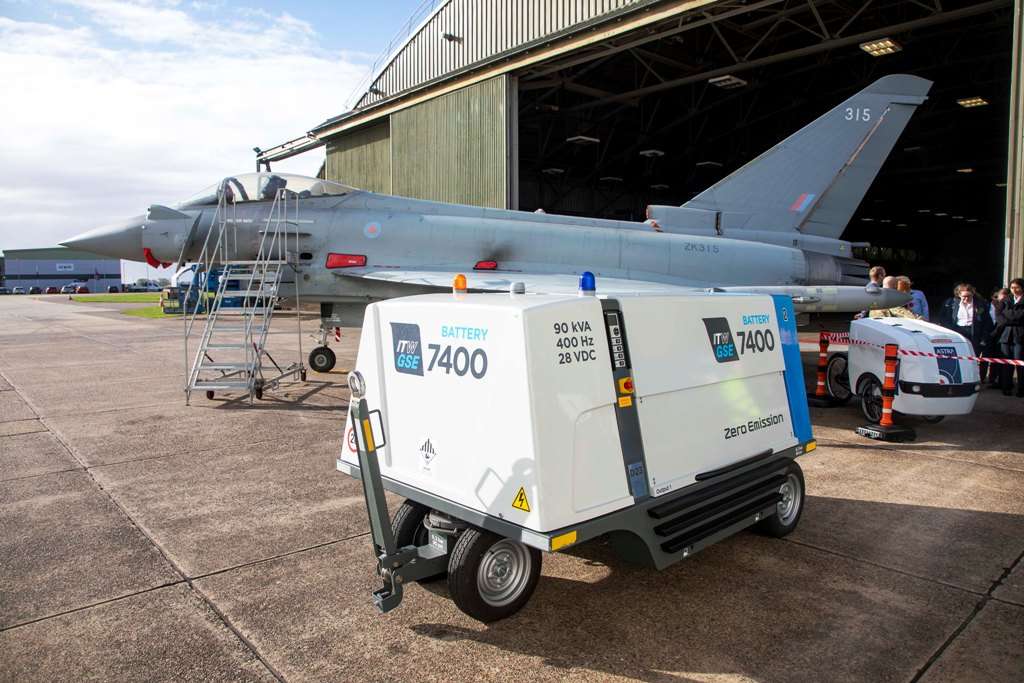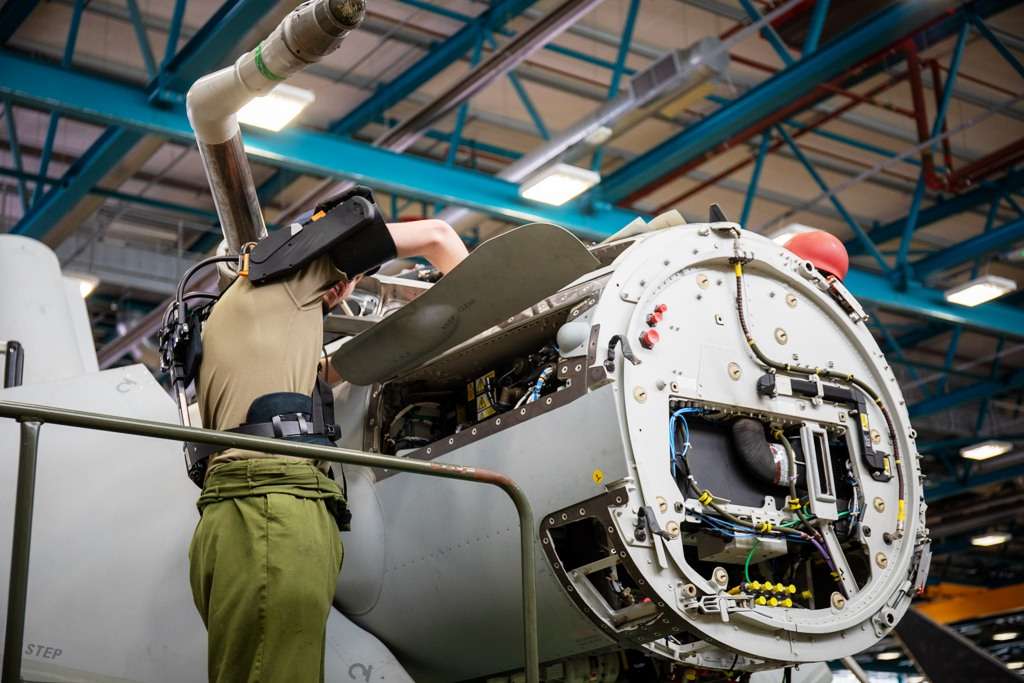
A glimpse into how exo-skeletons and robots could be used to support the Royal Air Force’s frontline aircraft was revealed today at RAF Coningsby, home to the UK’s Typhoon fleet.
BAE Systems and the Royal Air Force are exploring how fast jet support could be carried out smarter and faster using transformative technologies as well as greener, sustainable solutions and digital twinning. The innovations could significantly reduce costs and improve the availability of front line Typhoon fighter jets and, in the future, Tempest.
These technologies could be used to reduce fatigue and chance of injuries among support crews as well as improve the speed of maintenance on aircraft.

Some of the projects being trialled include:
- Exoskeletons – allowing aircrew and maintenance teams to handle greater loads safely;
- Autonomous co-bots – free-moving robots could work in tandem with the exoskeleton usersassisting with training and maintenance tasks;
- Augmented Reality headsets – allowing data to be visualised in new ways, offering aircraft maintainers hands-free access to technical publications and the capability to view a digital twin of the aircraft and its maintenance history;
- Sustainable operations – delivering advanced synthetic training to pilots and aircrew whilst maximising use of renewable resources to help the RAF meet its target of net zero by 2040.
Nick Sharples, Head of Technology Delivery, Support and Training for BAE Systems’ Air sector, said: “Working with our partners to trial new technologies and solutions for future fast jet support helps us explore new ways of delivering leading-edge capabilities and value for money to the RAF on the front line, whilst also reducing the environmental impact of our operations through synthetic training and investment in electric products”.

Group Captain Daniel Penter, Director RAF ASTRA, said: “The pace by which technology advances is increasing all the time and it’s imperative that we explore with industry how best to harness this to enhance how we support the frontline.”
The trials at RAF Coningsby form part of a wider strategy to drive efficiency through the introduction of technologies, to develop new partnerships through collaboration across academia and small and medium enterprises and to contribute to UK jobs across the supply chain.



Be the first to comment